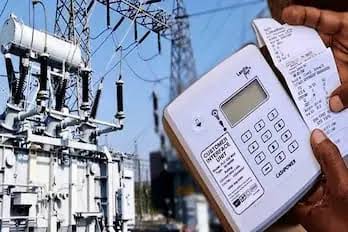Electricity generation companies, under the aegis of the Association of Power Generation Companies (APGC), say the Enugu Electricity Regulatory Commission’s (EERC) planned cut for Band A tariff will lead to further debt accumulation.
In a statement on Sunday, the EERC said it had approved a new tariff for MainPower Electricity Distribution Limited, cutting the Band A rate from N209 per kilowatt-hour (kWh) to N160/kWh — down by N49.
The new tariff is expected to take effect from August 1.
The EERC described the new order as cost-reflective, saying the tariff was designed to reflect the federal government’s subsidy on power generation cost, “which charges only N45 out of the actual cost of N112”.
Reacting to the development in a statement on Monday, Joy Ogaji, the APGN’s chief executive officer (CEO), said the EERC’s new tariff has set a precedent for other states.
“It is imperative to state that there is no FGN policy on subsidies. It is debt accumulation!!! If anyone has the proposed policy document please kindly share publicly,” she said.
From EERC’s tariff order, Ogaji said only “N45 is captured for generation cost out of the actual N112”.
“This portends a bigger issue in the decentralisation of power or electricity to the states,” she said.
“There are many, and burning questions about dealing with obligations and liabilities (all legacy debts post privatisation but before the exit to state independence) in the decentralisation discourse.
“Does this position mean, EERC are looking over to FGN to continue subsidizing their electricity? How does EERC account for their share of the accumulated sector debt or are they assuming assets with no liability?
“Should EERC not be designing its tariff to remove its dependency on the FGN and make its market attractive for investors?”
Ogaji noted that the federal government’s 2025 budget only earmarked N900 billion for electricity support.
She described the figure as insufficient to cover the sector’s yearly generation invoices, which average N250 billion monthly.
Ogaji said the “N45 of generation cost that EERC is assuming in their tariff setting, out of average N112, implies they are accounting for just 40 percent”.
“Hence, 60% is left to be covered by the assumed FGN subsidy, which for this year is just N900bn and not cash-backed till today,” she said.
“This is a huge contagion that needs to be dealt with but at the Presidency level.”
Ogaji reiterated that Nigerian power generation companies are collectively owed over N4 trillion.
She added that there are “no workable solutions” in sight — including cash payments, financial instruments, and debt swaps — to clear the debt.

